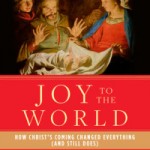Emily Stimpson’s is a beautiful voice of the New Evangelization. Her recent book, The Catholic Girl’s Survival Guide for the Single Years: The Nuts and Bolts of Staying Sane and Happy While Waiting for Mr. Right, is bravely honest, a great help to her and younger generations. (I chatted with her about it here.)
This week she wrote about the “glories” of being “weird.” Not to get somewhat Emily Dickinson on you, but are you “weird” too? Emily writes:
Thanks to the New York Times, The Washington Post, and CNN, I hear on almost a daily basis just how weird I am.
Of course, they don’t say that in so many words. It’s not like they’re running headlines proclaiming, “Emily Stimpson is a Freak.” The headlines are more like, “Rick Santorum is a Freak.” Every time they say that about him, however, they say the same about every other crazy Christian who hasn’t yet bought into the Gospel According to the Post-Modern World. Which includes me.
At first, I didn’t much like being told morning, noon, and night that I was a cultural oddity. Truth be told, I kind of resented it. But, increasingly, I’m cool with it.
Rather than fighting the weird label, I’ve decided to lean into it. You see, the truth is, I love my weird life.
I love waking up and knowing I have a purpose—some story to write, neighbor to serve, or friend to help. Basically, some way of making God’s love incarnate in the world. I also love knowing that it doesn’t matter how trivial that work might seem to others, that if it’s work done well and for Him, it’s important, eternally important.
As I go about that work, I love knowing I’m not alone. God is with me in His Word and Church, Body and Blood, angels and saints. He is always waiting for me to be with Him in prayer and the sacraments, and He is always guiding me and strengthening me, making straight my crooked efforts. I need that, and I love that.
I also love that I see God in all the little blessings that come my way each day, from the first cup of coffee and a morning sky streaked red and gold, to the sounds of little ones laughing in the yard next door. I love seeing the world not through rose-colored glasses, but as it is, terrifyingly beautiful, filled with Love, the weight of eternity imbuing every word, gesture, and molecule of creation with traces of the divine.
Christians are called to live differently, right? That’s what Emily means.
And the truth is that the way she tries to live her life is only weird to a culture that’s lost its soul, that’s enslaved itself to this world and its passing trappings.
That latter matter is what should be the weirdness, foreign to our heart’s deepest desires.
But we’ve made a bit of a mess of things, haven’t we?
In a review of Mary Eberstadt’s powerful new Adam and Eve After the Pill (more to come on that), George Weigel writes:
Adam and Eve after the Pill also explores the cultural weirdness that has followed the Pill’s inversion of classic western and Judeo-Christian values; in a particularly insightful chapter, Eberstadt analyzes the food taboos that have replaced discarded sexual taboos. The book ends with a telling, if ironic, judgment on the long-term impact of the 1968 encyclical Humanae Vitae: “one of the most reviled documents of modern times, the Catholic Church’s reiteration of traditional Christian moral teaching, would also turn out to be the most prophetic in its understanding of the nature of the changes that the [sexual] revolution would ring in.”
Contrary to what you read in the papers, the “birth control debate” isn’t over. It’s just beginning.
The weirdness isn’t in how Emily has chosen to live. But it is in what’s all around her, portraying her as some kind of freak of nature. The weirdness is a social culture that expects women to drug away their fertility.
Come on, that is an odd state of affairs. And this is where we are.
And, by the way: Contrary to conventional coverage, there are not mainstream political candidates out there arguing that anyone should not be free to make the choice to use birth control. Nor do I know people judging those who do. But let us not pretend it is a basic health-care right and let us not stay silent as it becomes a mandate. And I hope we can all agree that Emily has the right to propose an alternative way from commonplace social expectations and should be free to live it.
There are a lot of things going on right now, and as we’ve multitasked at making the mess, I’d like to think we can do the same with the repair work. The political sphere can do its job and protect our right to believe all kinds of weird things. At Church, we can teach Truth — with the expectation of being able to continue to choose to practice it here in the future. Culturally, we can listen to the damage that has been done. Like George said, it’s only the beginning of a deep and transformational conversation.
Unless we continue the move to weirdly institutionalize all this nonsense and officially marginalize those who speak strongest for freedom, on so many fronts.











